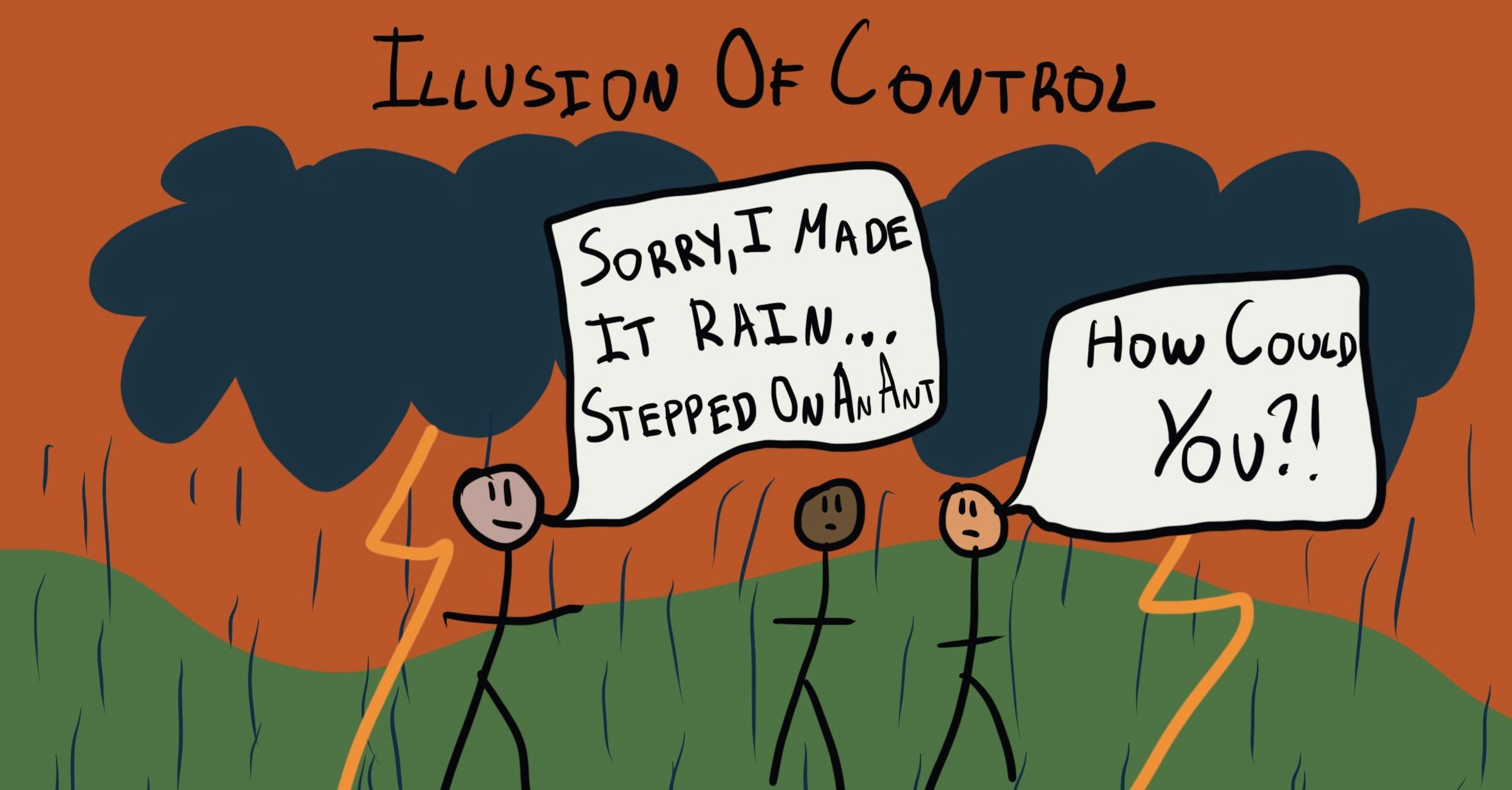Por qué creemos que tenemos más control sobre el mundo del que realmente tenemos
The explicó.
Bias
¿Qué es la ilusión de control?
La ilusión de control describe cómo creemos que tenemos más control sobre los acontecimientos del que realmente tenemos. Incluso cuando algo es fruto del azar, a menudo sentimos que podemos influir en ello de alguna manera.

Dónde se produce
Tú y tu familia vais a ver a vuestro equipo de fútbol favorito en el partido del campeonato de liga. Como siempre, tu padre lleva su camiseta de la "suerte" con los colores del equipo. Últimamente le queda un poco pequeña, pero insiste en ponérsela porque cree que aumentará las posibilidades de victoria del equipo.